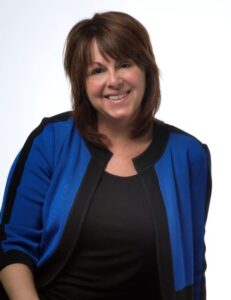Clinical Researcher—January 2021 (Volume 35, Issue 1)
CAREERS & CULTURES
Rosalie Harrison
It often seems that, when talking with chief medical officers (CMOs) about their work, circus metaphors abound. “It is like this,” one CMO told me, “I am trying to balance many plates, but none of them are spinning.” Another confided, “I feel like I’m juggling with fiery torches” and yet another described her work as “performing on a trapeze with absolutely no net.”
Despite these challenges, the allure felt by some physicians working in drug development with well-established (and perhaps somewhat traditional at their corporate age) sponsor companies to “run away” to join a shiny, new biotech as its CMO is undeniable. Feeling trapped in endless meetings and a constant battle for project-funding relevance—or simply tired of waiting around to move to the next rung of the ladder—MDs may be drawn to roles that promise hands-on, strategic impact and the possibility for more agile decision-making.
The allure is particularly strong, of course, where the coveted (and often romanticized) role of CMO is concerned. Like merely visiting the circus, however, biotech fantasy does not always prepare one for biotech reality. While most MDs are quite quick to appreciate the need for innovative science and clinical pipeline potential when assessing a biotech opportunity, the importance of other game-changing challenges often goes unexplored or is simply misunderstood.
If you are an MD in this situation, equally important is the self-awareness needed to assess whether “circus” life is right for you. Offered here, for MDs considering a biotech career move and CEOs/Board of Trustees looking to hire the right CMO, are some additional factors to consider.
Seaworthy Mates Matter
When you leave big pharma to join a start-up biotech, it’s actually more like you’ve run off to sea rather than to the circus. You are stepping off a stable aircraft carrier and landing in a life raft. Don’t be in denial about your newfound situation; you will be subject to severe and changing weather conditions. To survive, everyone in the life raft must be able to collaborate and align, and to do so in extremely dynamic conditions. Unpredictable stress behaviors will abound, even for the most seasoned leaders.
In such an environment, trust, respect, and shared vision and values are essential for survival. Accordingly, we recommend that, in addition to assessing the experience of the leadership team you will be joining, you conduct a “life raft” gut check. It’s a simple process—before jumping ship, ask yourself if these are the people with whom you would want to share a life raft. Listen to any nagging doubts and act accordingly.
Role Respect is Vital
As the CMO, you will undeniably be a critical moral and ethical compass for the company. Do not underestimate the commercial and investment pressure that will bear down upon you while your medical ethics responsibilities are ramping up exponentially. Your ability to safeguard and perform this function is of the utmost importance to the integrity and success of the company, not to mention the rights and safety of patients.
You will also have fiduciary duties to investors. As such, the structure of the CMO role must have adequate strategic input and cross-functional responsibility for you to perform. You must also ensure that the CEO and Board have full respect for, and understanding of, the function that a CMO must serve. Do not compromise on these issues when interviewing, conducting your due diligence, or even in the final stages of negotiating the terms of your role.
An SOP Void Can be Disorienting
You will undoubtedly confirm during your interviews that you are capable of wearing many hats and being hands-on. We even believe you will be sincere about it. However, especially if you are coming from big pharma, it’s likely you have no idea what this really means.
Gone are the standard operating procedures (SOPs) and systems that were as foundationally reliable as the air you breathe. Even though you will be tasked with building sustainable frameworks—capable of moving your development pipeline closer to the patient—it is altogether possible that you will be the only one in the room who even knows what these SOPs and systems are and/or why they are important. So, forget about the safety net.
Wearing many hats and being hands-on is more akin to performing on the trapeze while building it. A need to adhere rigidly to (known) process and policy is one of the primary reasons professionals fail in an entrepreneurial, fast-growing environment. You must build a framework that is regulatory- and safety-compliant, but you will need to do so with innovation, agility, and more-with-less thinking, all of which will be critical to your success (and sanity). Do not underestimate your own risk profile and resilience in this regard.
You Will be Creating Company Culture
The reason big pharma companies feel like stable aircraft carriers is not just because of their size or their reliable SOPs; stability is also greatly enhanced by the presence of a well-defined and implemented company culture. As a member of the C-Suite, defining and implementing company culture will now be in your hands.
Creating a company culture is a critical strategic responsibility. It is essential to cultivating shared purpose and fostering organizational vitality, especially in a dynamic environment where culture can be impacted by the personality of every new hire. It is also essential to employee retention and engagement—the life blood of any biotech.
This is an exciting and daunting responsibility, and it is often overlooked. Culture does not just happen—it’s strategy, though it can feel like a soft skill that should be relegated to the human resources office (a sophisticated function that might not yet exist in your biotech). Think again, and be sure you will enjoy this aspect of the role.
Recruitment, Recruitment, Recruitment
A huge part of your CMO job will be recruitment. Being dynamic, fast-paced, and eager for go-global growth is a hallmark of the kind of professionals it takes to move a pipeline from early- to late-stage development. Entire functions will need to be significantly upgraded or created and new geographies will need to be explored.
Professionals with experience at launching products and in full command of all the commercially aware skillsets that requires will be needed to supplement a workforce that has, up until now, gotten by on the strengths of its scientific innovations. Attracting and integrating critical new talent while valuing your existing contributors—many of whom may hold inflated biotech job titles and below market salaries—will be extremely challenging.
You may, in fact, find that your recruitment power and support are significantly less than you expected in such situations. When assessing your fit for a CMO role, make sure that building your organization under these circumstances feels professionally rewarding and worthwhile, rather than daunting. It will be a big part of your job.
Nothing Survives Without Money
A biotech can have amazing science and a promising pipeline potential, but without an appropriate financial strategy the company will not survive. Take time to assess historical and current capitalization, as well as the company’s continuing ability to attract and secure capital in the future, whether through investors or alliances. Pre-commercial biotechs do not survive without money.
You Are Embracing a New Career Path
A biotech career is very different from a traditional big pharma career. When assessing a move to biotech, you will need a new career mindset. You are investing in potential and your compensation package will reflect this reality and risk.
In addition, many (if not most) biotechs are destined to fail or get bought out, so it is not unusual for professionals who transition into biotech to grow their entrepreneurial leadership competencies through multiple career transitions. If you can embrace this new mindset and still find yourself excited about the new challenges and opportunities, circus life may just what you needed all along.

Rosalie Harrison is a Partner with Borderless, a global consulting firm specializing in executive searches for the chemical industry and its value chain, the life sciences industry, and the food and drinks sector.



